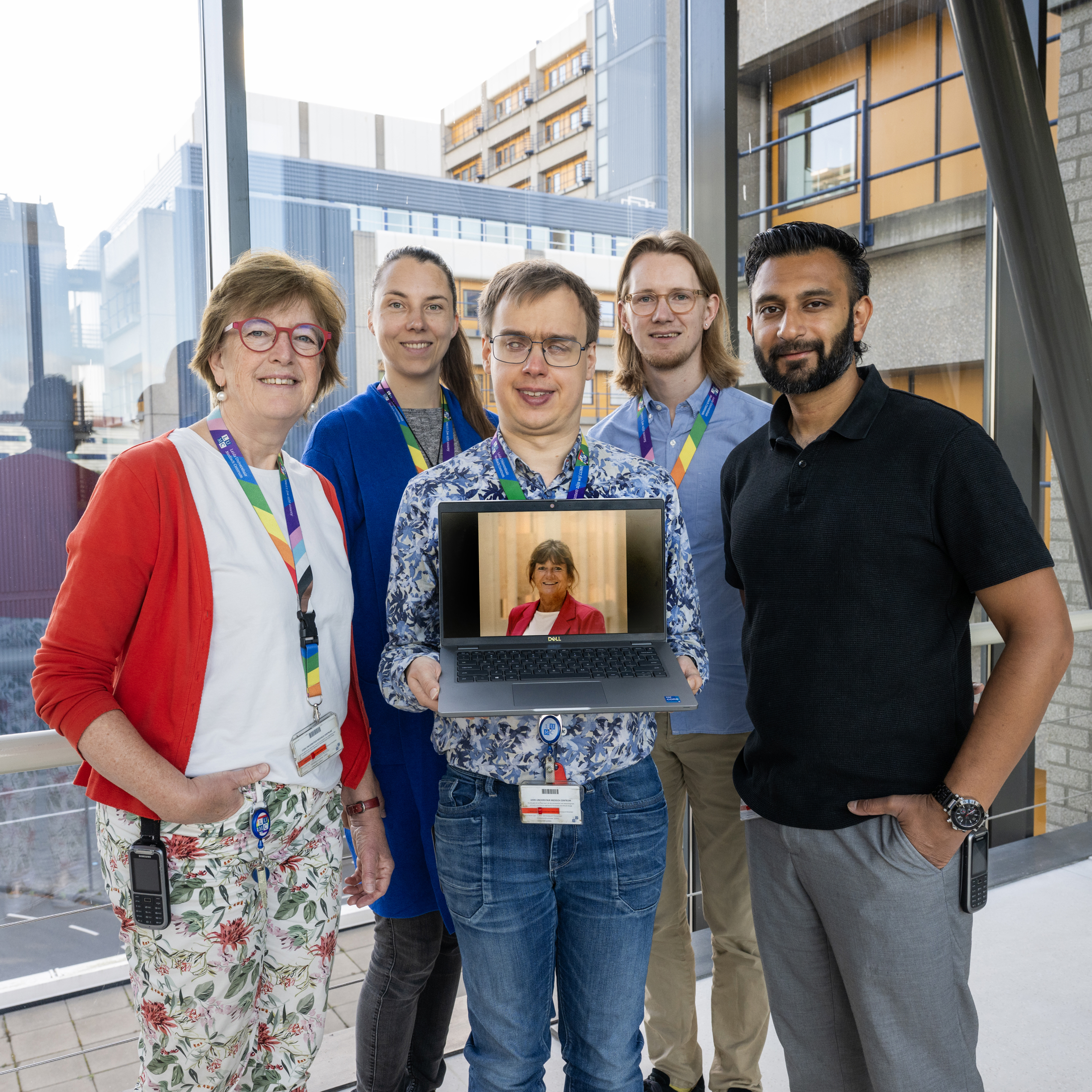Anna van Gessel & Suzan Brukx
&width=400&height=400)
“We give each other the space to be who we are. By being open, daring to see each other in our differences, and not trying to impose your opinion. In this way, we respect one another.”
How do you experience diversity and inclusion in your workplace?
Suzan: “We provide spiritual and moral counseling and are here for all patients and their loved ones. In the midst of diagnosis, treatment, and illness, we create space to pause and reflect on what someone is going through and what it means to them. That can be very diverse. For one patient, it is about worries over a difficult diagnosis; for another, it is about a moral dilemma; for someone else, it is about missing home.” Suzan emphasizes that these are not only sad stories: “It can also be about celebrating life, for example after a transplant.”
Spiritual care adapts to the patient, is there for everyone, and is not bound to a particular religion. “Because everyone has a worldview,” Anna explains. “It’s important to know how you view life and what your values are. What does a good life mean to you? Who am I, and who is the other? We connect without judgment to whatever the other person is discovering. Together we discuss life questions and search for meaning.”
In addition, the spiritual caregivers provide clinical lessons to healthcare professionals. “These lessons are largely about raising awareness of one’s own norms and values. We also emphasize that culture and religion are not absolute. Someone from a certain culture does not necessarily adhere to a specific faith, and vice versa. By getting to know different cultures and the variations within them, you can better connect with your patient or their loved ones.”
What does the ideal inclusive workplace look like for you?
The spiritual care team itself is diverse, says Suzan: “We are six people, varied in age and worldview, without wanting to put that into boxes. The way we approach patients also applies to us as colleagues. We give each other space by being open and by seeing one another in our differences.”
Which elements of our work culture currently make you happy or proud?
Anna: “I find it very important that LUMC recognizes diversity and inclusion as a major theme. Even on a global scale: we take a stand and position ourselves.” Suzan adds: “At the same time, the fact that emphasis is needed shows that we’re not there yet. We still tend to think in boxes. Take, for example, social backgrounds, different environments; judgments or conclusions are often made about these.” Anna: “As healthcare providers, we should all have an open, listening attitude at our core and dare to ask open questions. After all, LUMC’s core values are personal, connecting, curious, and equal.”
Anna concludes that progress is being made on several levels: “If you look at the bigger picture, LUMC is making wonderful strides. At the policy level, it is neatly written down. In daily practice, there is still progress to be made. That is where we, as spiritual caregivers, are happy to contribute.”